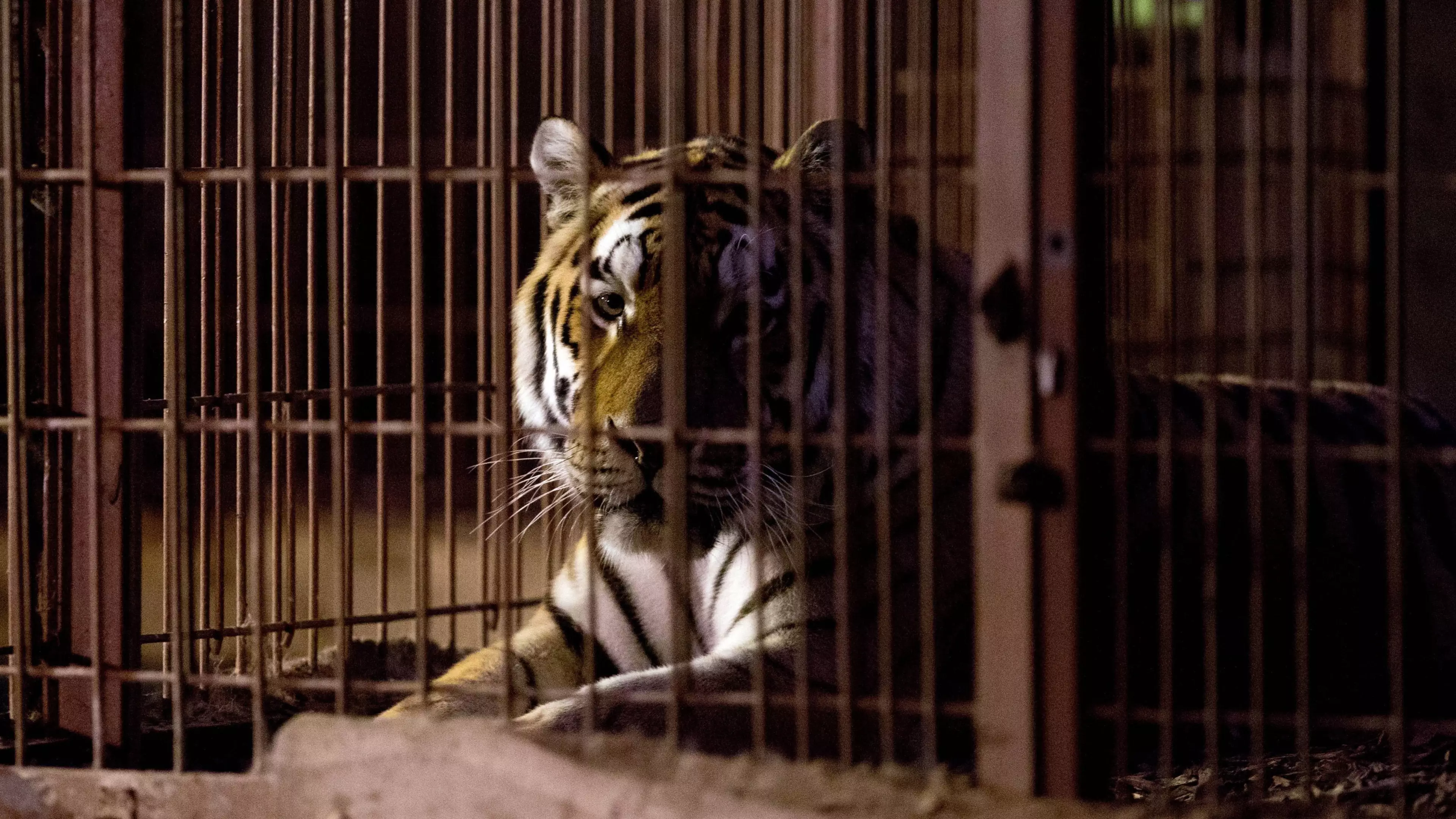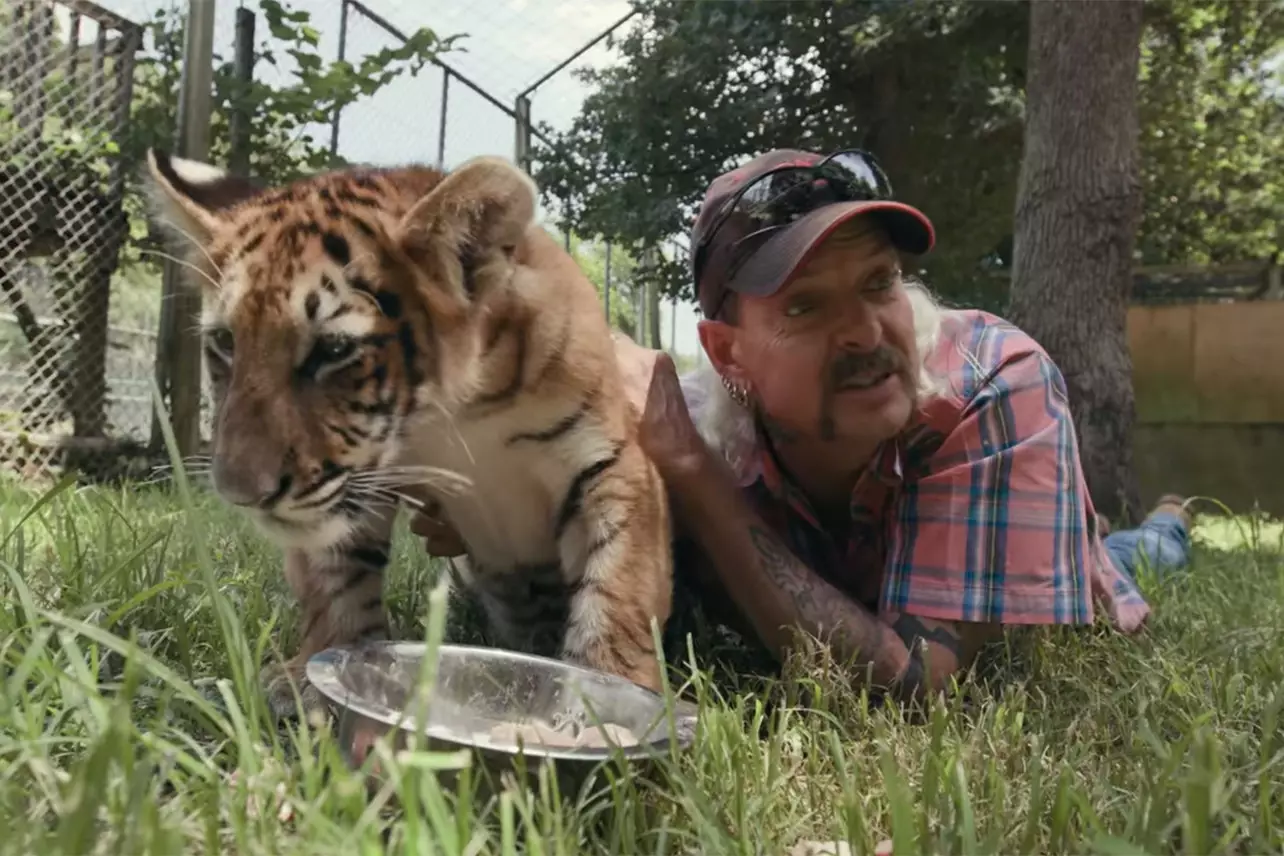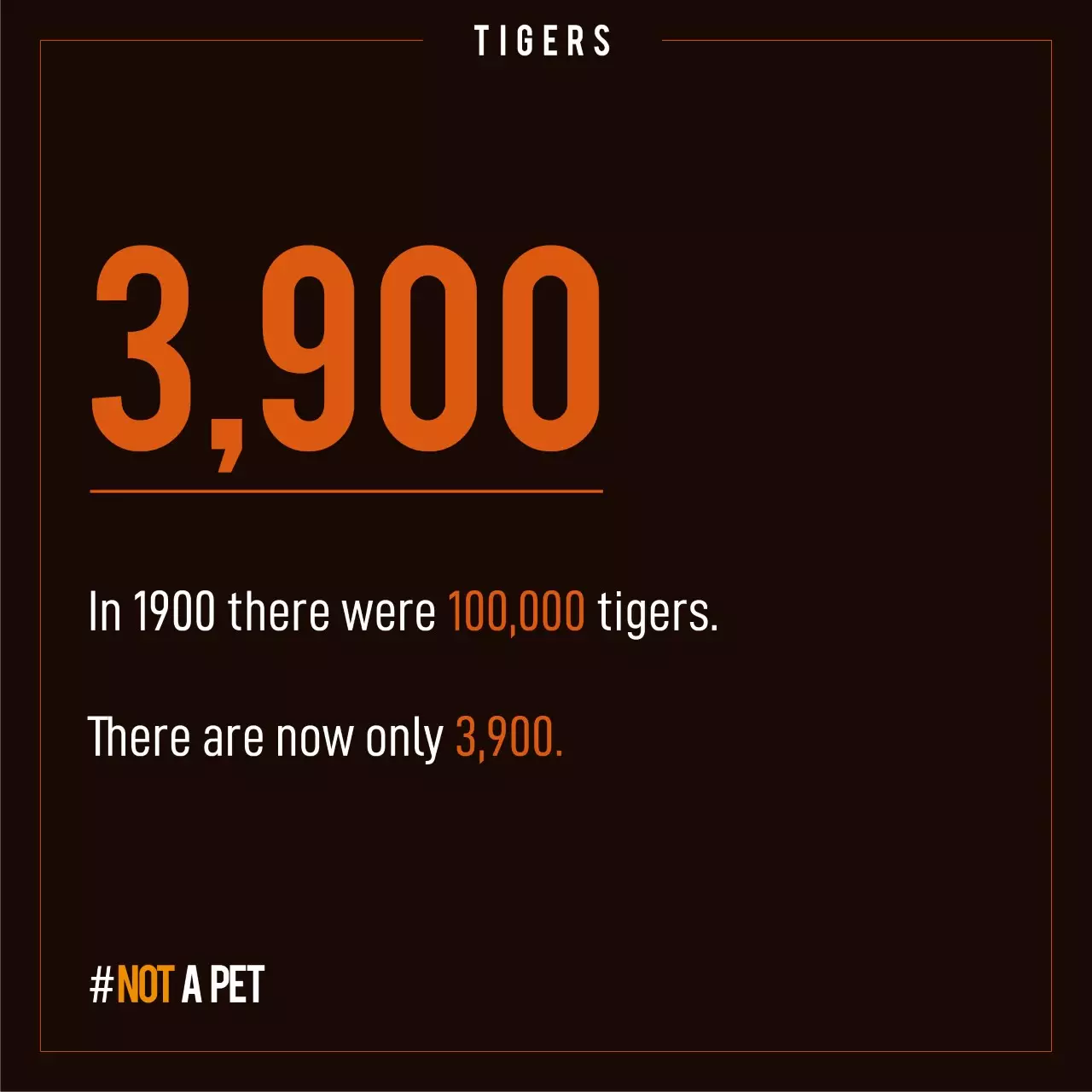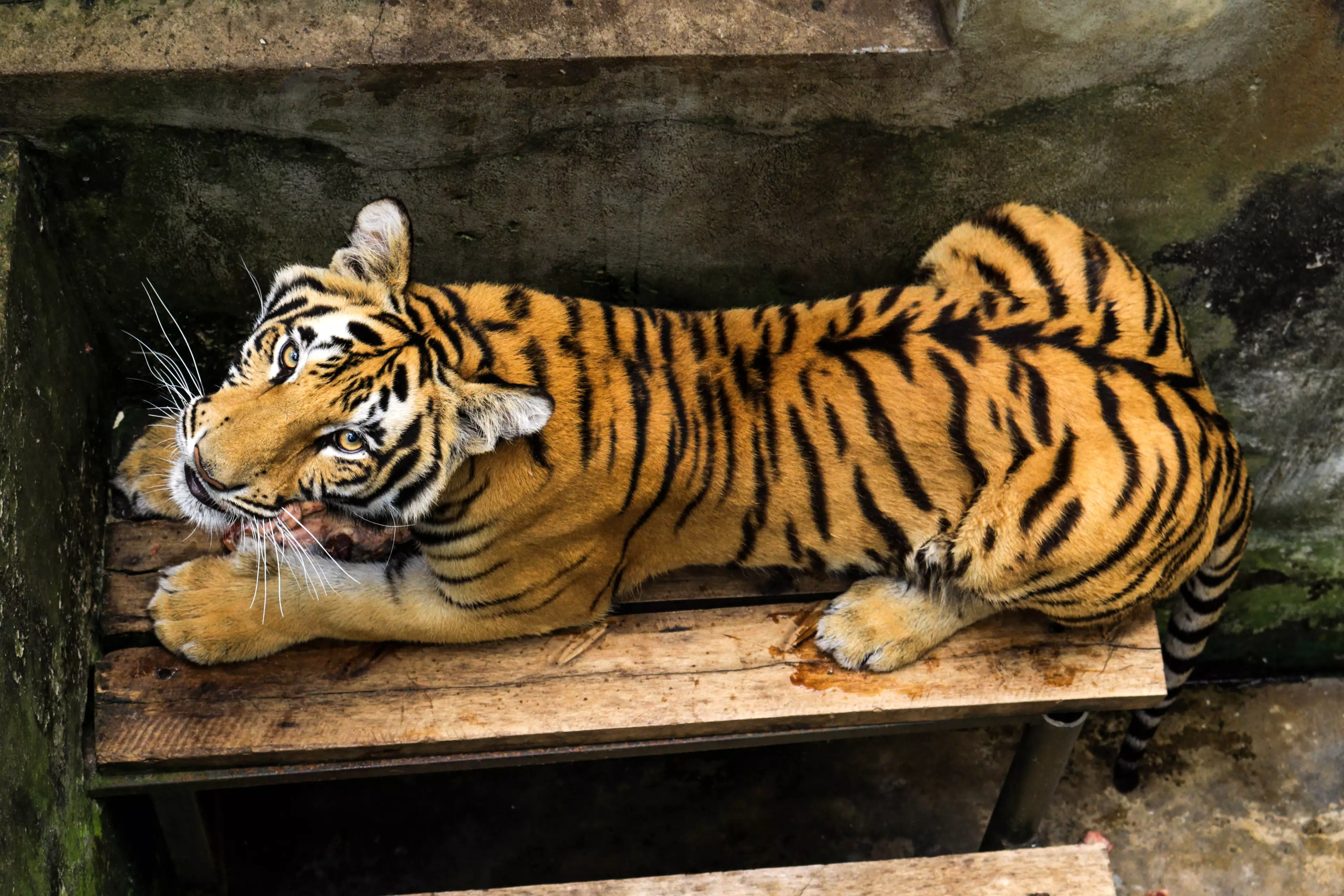
It's been a year since Tiger King dropped on Netflix, shocking and captivating viewers across the globe.
The questionable characters, escalating feuds and interminable twists undeniably made for compelling TV, but at the heart of it all was a troubling theme - the mistreatment of tigers.
Tragically, the welfare standards exposed in the docuseries are not uncommon, and an estimated 5,000 tigers are living in captivity in the US; of these, only around six percent are being kept in accredited facilities such as zoos, according to conservation organisation Traffic.

By contrast, only around 3,900 remain in the wild worldwide, down from 100,000 in 1900.
Advert
In a bid to protect big cats from the sort of handling exhibited by the likes of Joe Exotic, a new series is exposing the illegal pet trade and encouraging viewers to take action.
Not A Pet is available to view on free wildlife and environmental streaming service WaterBear and a petition has been set up in tandem with its release, calling for US Congress to advance new laws that will protect wildlife and ensure public safety.
Lisa Rose, head of impact at WaterBear, said: "Tiger King drew the public's attention to the brutality inherent in the US exotic animal trade, but we still need a much greater level of awareness around the dangers of having wild animals as pets, for the sake of public safety but also to ensure these species can continue to survive in the wild.
Advert
"It is critical that we support new legislation that can help end the cruel trade in captive big cats and primates as well as making it socially unacceptable to keep wild animals as pets."
Mike Tyson was one such exotic pet owner who realised he had been 'foolish' to keep the animals after watching the show, and WaterBear is hoping five-part series Not A Pet can open more eyes and prompt real change in the States.

Addressing members of the US Congress, the petition reads: "As Americans and citizens from around the world who are concerned about the welfare and conservation of wild animals, we urge you to take action against the inhumane trade in tigers, lions, chimpanzees, and other captive species across the US by enacting the Big Cat Public Safety Act (BCPSA) and the Captive Primate Safety Act.
Advert
"These bills, if enacted, will protect both wildlife and communities in the US and set a positive example for wildlife managers around the world."
The Big Cat Public Safety Act was passed by the House of Representatives last year, but still needs to be voted through the Senate to become law.
Leigh Henry, director of wildlife policy at World Wildlife Fund (WWF), has also urged US Congress to pass the BCPSA.
In a statement shared with LADbible, she said: "As a leader in promoting the conservation of tigers globally, the United States has a responsibility to manage the staggering 5,000 estimated captive tigers within its own borders.
Advert
"Congress must act now and pass the Big Cat Public Safety Act (BCPSA) to uphold this leadership and prevent captive tigers in the US from filtering into the illegal trade.
"Passing the BCPSA will make quick progress on an issue that has suffered government inaction for far too long and will empower the US to answer important questions like how many tigers live here, where they are, when they are sold and traded, and what happens to their valuable parts when they die."

She continued: "The remaining 3,900 tigers left in the wild are under great threat across Asia due to poaching for illegal trade and habitat and prey loss.
Advert
"Any supply of tiger parts into the black market can stimulate trade and consumer demand, which could pose a serious risk to already threatened wild tiger populations."
You can sign the petition here and watch Not A Pet here.
Featured Image Credit: PATopics: Tiger King, Animals, Cats